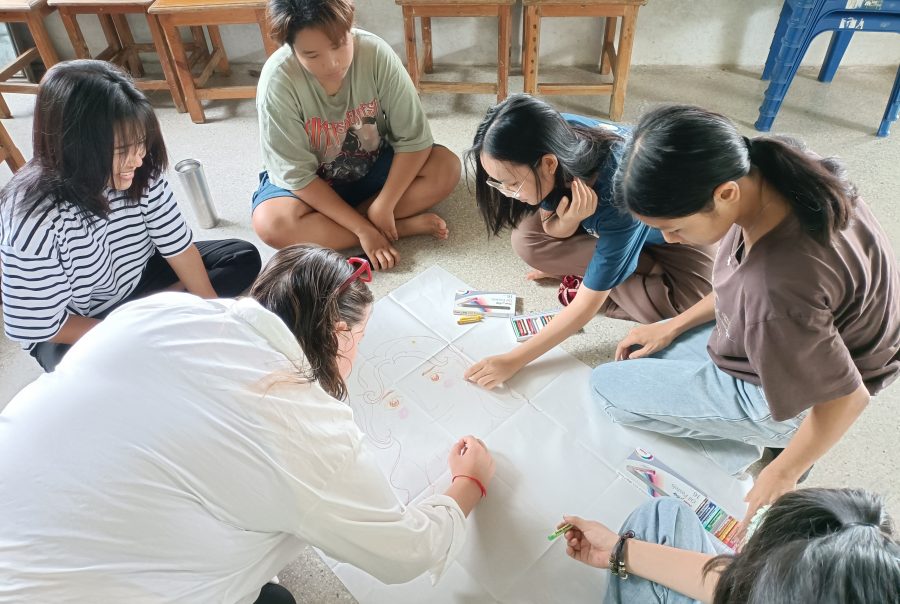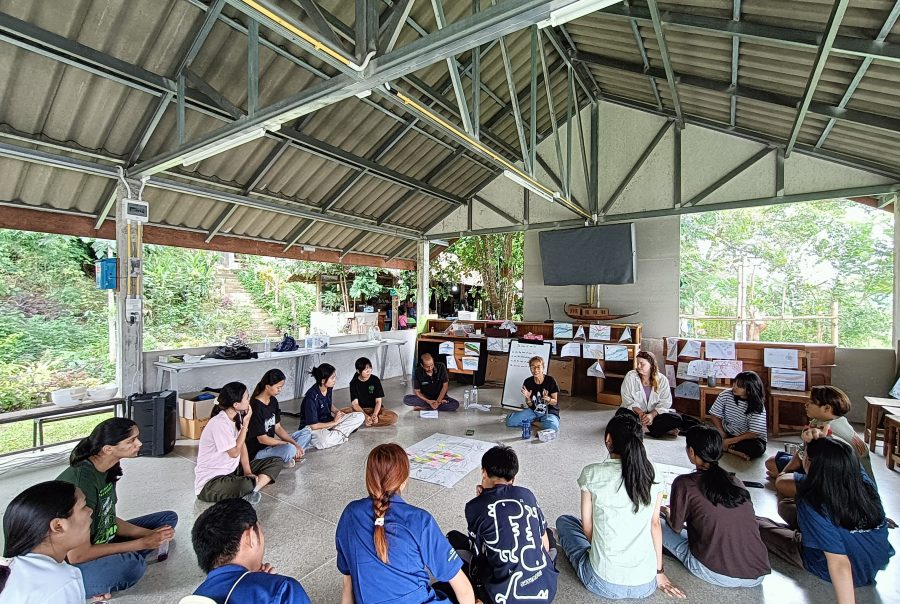Mekong Youth welcome the "Where There Be Dragons" youth group to learn and explore together.
July 5-6, 2024
the Mekong School Institute of Local Knowledge, in collaboration with “Where There Be Dragons” youth group welcomed nine international students from the United States and China to learn about the Mekong River at Chiang Khong. Participants included local students from the Mekong Youth Program, including six from Chiang Khong Wittayakhom School and two from Huai Soi Wittayakhom School; three interns from Michigan State University; and five interns from Mahasarakham University.
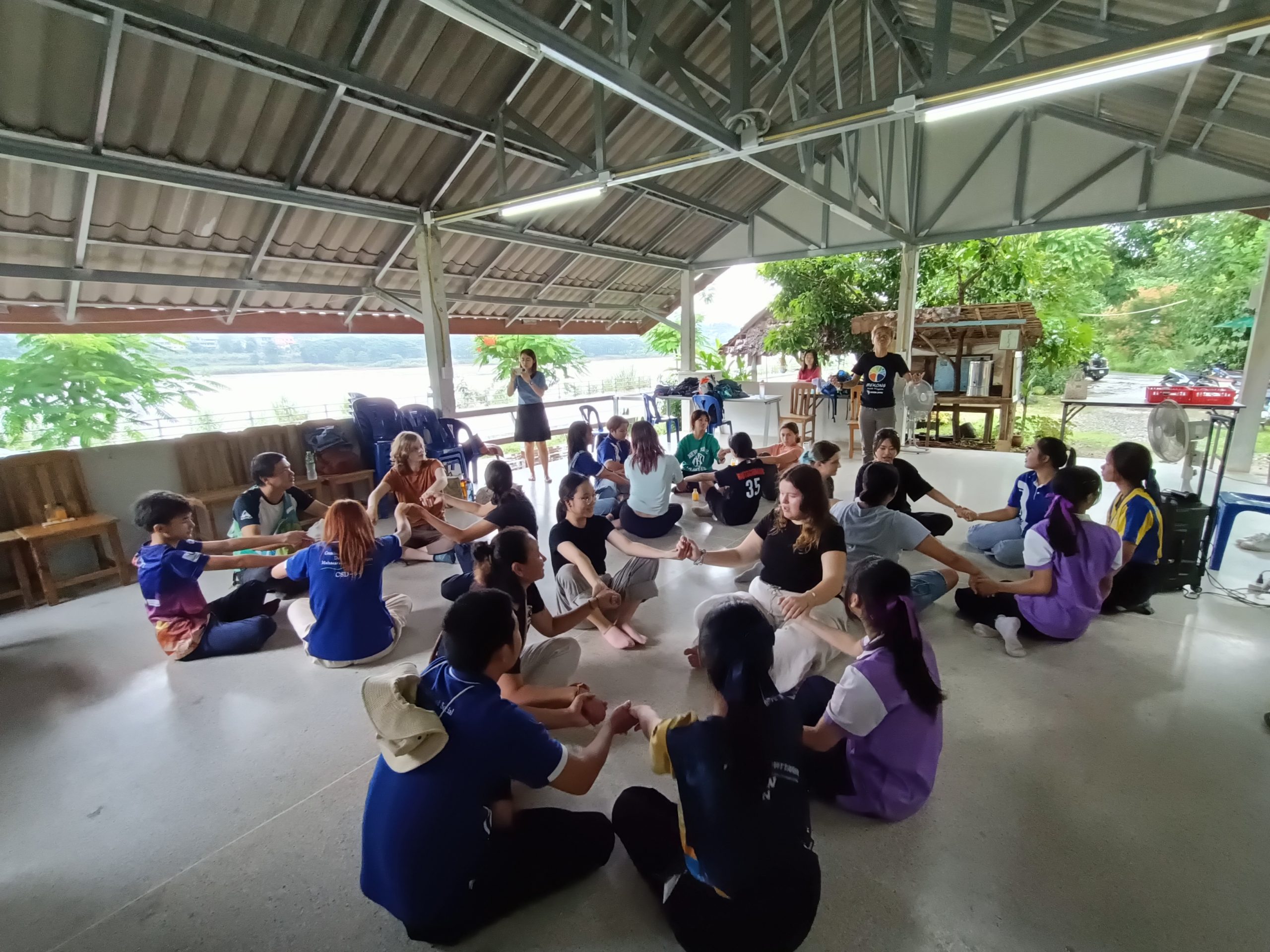
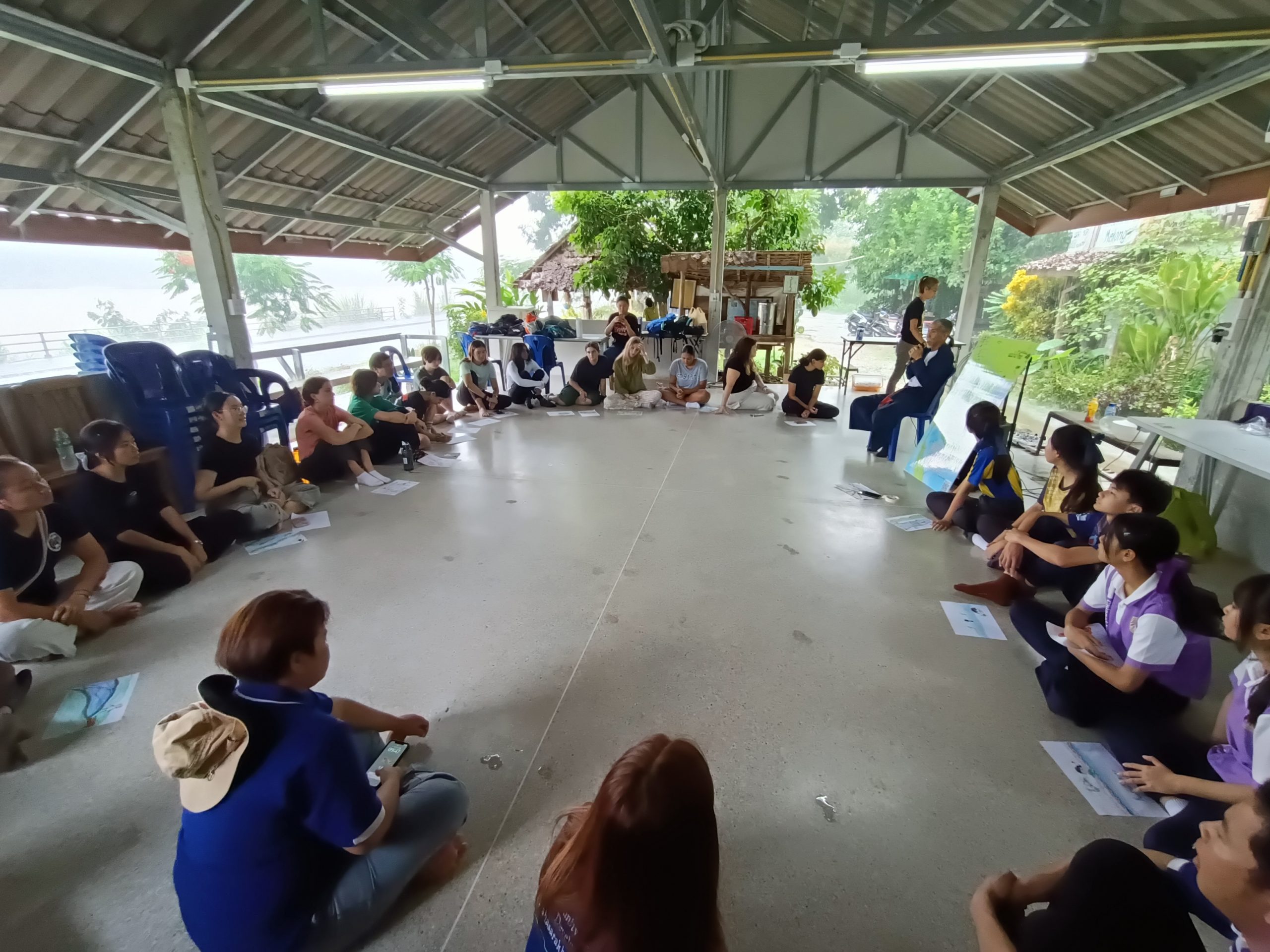
This project was supported by the U.S. Embassy in Bangkok for the second year. As Part of this project, The Mekong School has been integrating the Mekong Youth science curriculum with local schools in Chiang Khong, Wiang Kaen, and Chiang Saen districts in Chiang Rai Province.
The activities began with an icebreaker session called “My Home, My River,” followed by a lecture and discussion with Mr. Niwat Roikaew (Khru Tee), the director of the Mekong School and a Goldman Environmental Prize winner. The topic covered the basics of the Mekong River, the impact of dams, local livelihoods, natural resource management, and community participation.
Malee Pattanaprasitporn, the project coordinator of the Mekong Youth Program, introduced the science curriculum and community development projects of the Mekong School Institute of Local Knowledge. She also demonstrated a water quality testing method using chemical techniques to measure dissolved oxygen (DO) levels. The students then conducted a field experiment at the mouth of the Ing River in Ban Pak Ing Tai, traveling by boat from the Mekong School pier through Chiang Khong, Don Pong, and Don Wang. They observed fishermen at work, with three to four boats laying nets or searching for fish along the way.
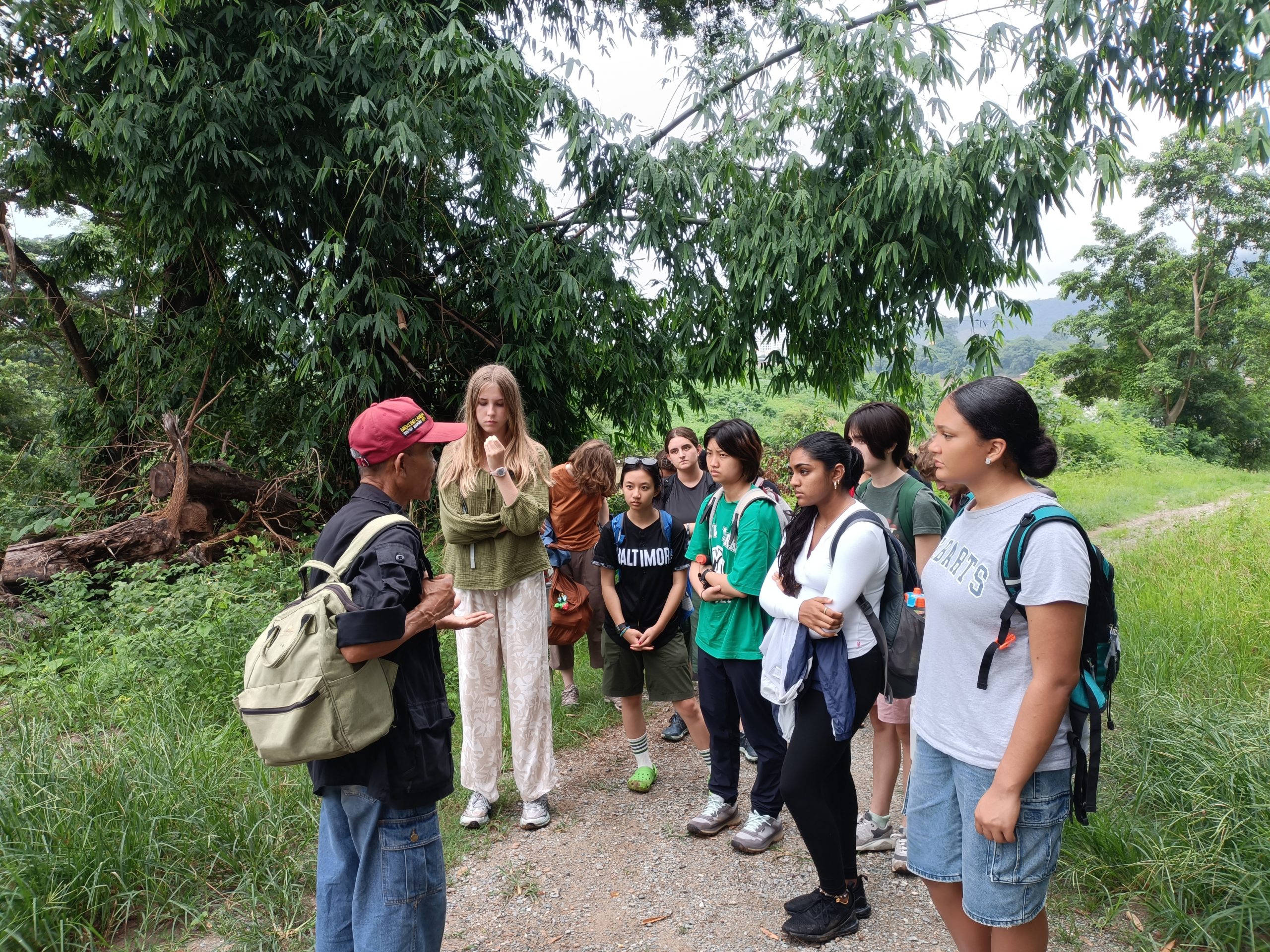
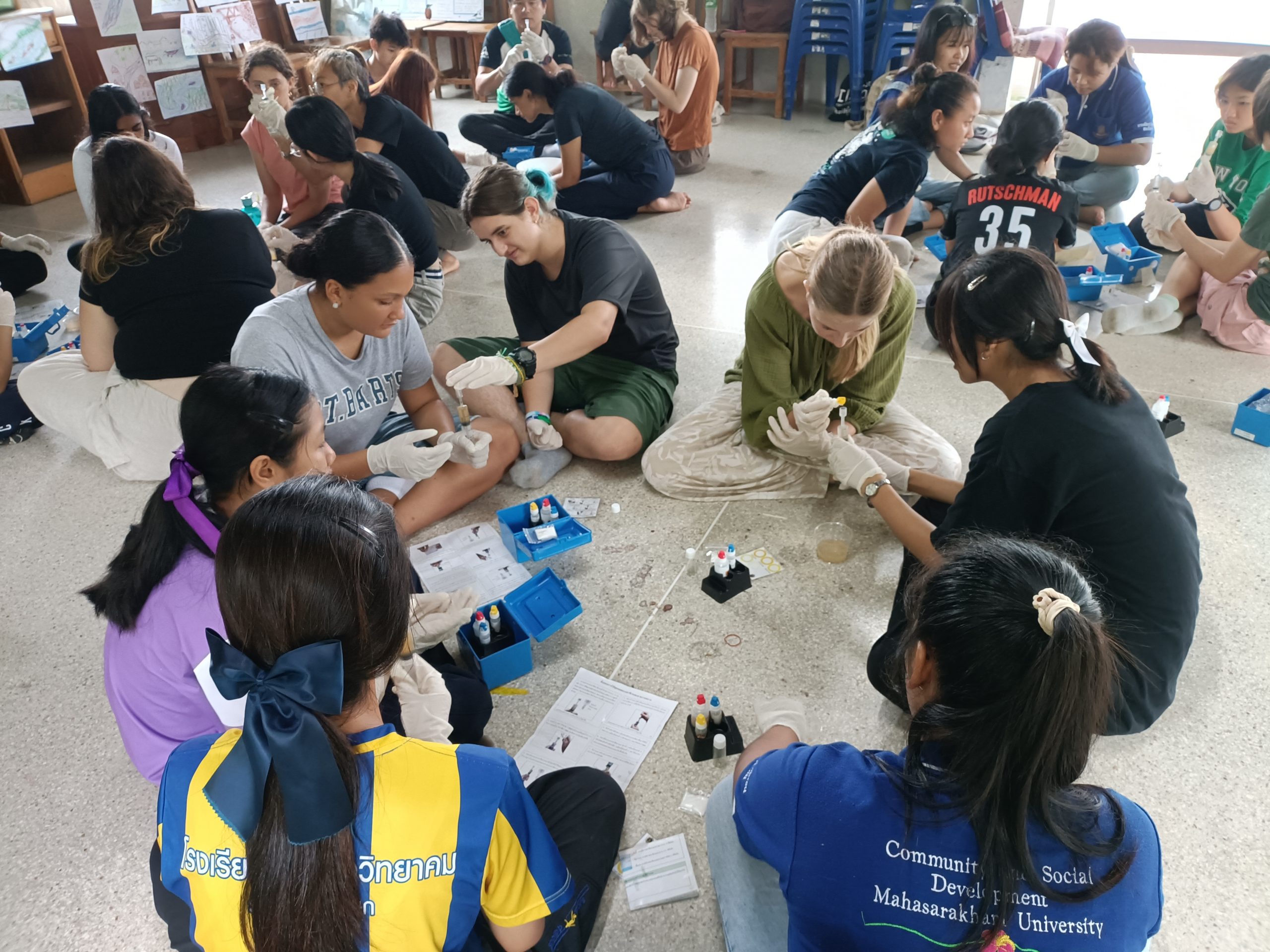
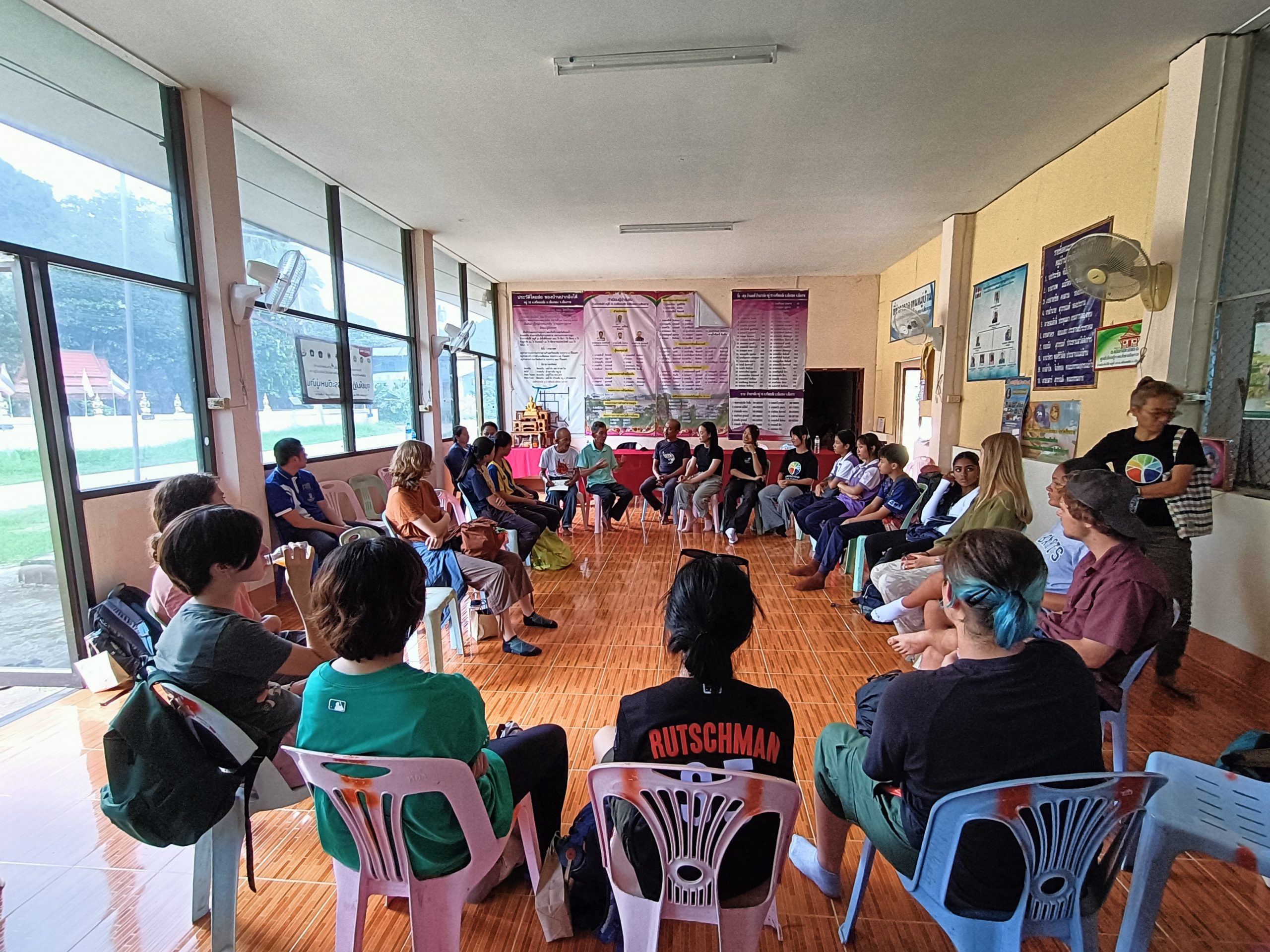
Chak Kineesee, a bird expert, led a discussion and exchange session from the riverbank to the pier, highlighting the changes in the Ing River mouth near the fish conservation area. The water quality test took a short time and showed a dissolved oxygen level of 8 ppm, indicating good water quality in the area. The students, teachers, and advisors also exchanged lessons learned about the changes and impacts of development on the local community.
Mr. Boonkong Boonwass, the first village head of Ban Pak Ing Tai since 2000, shared the history of the community and the changes in the Mekong and Ing Rivers. The current village head, Mr. Manop Manirat, discussed the health of the soil, air, and river in the community. The assistant village head spoke on behalf of the women’s group, which is trying to preserve fish from the river and ponds to make fermented fish and fish sauce, ensuring food security and generating additional income.
The students visited the local market “Gad Gong Gao” to learn about the local culture, food, and community. They interacted with the villagers of Had Krai, known for their giant catfish catch and production of Mekong River weed, an algae-based food called “kai.”
On the morning of July 6, the Mekong Youth Program students from Chiang Khong Wittayakhom School and Huai Soi Wittayakhom School reviewed and reflected on their learning experiences from the community visit. They brainstormed ideas for their individual projects and set a follow-up meeting to finalize their plans.
